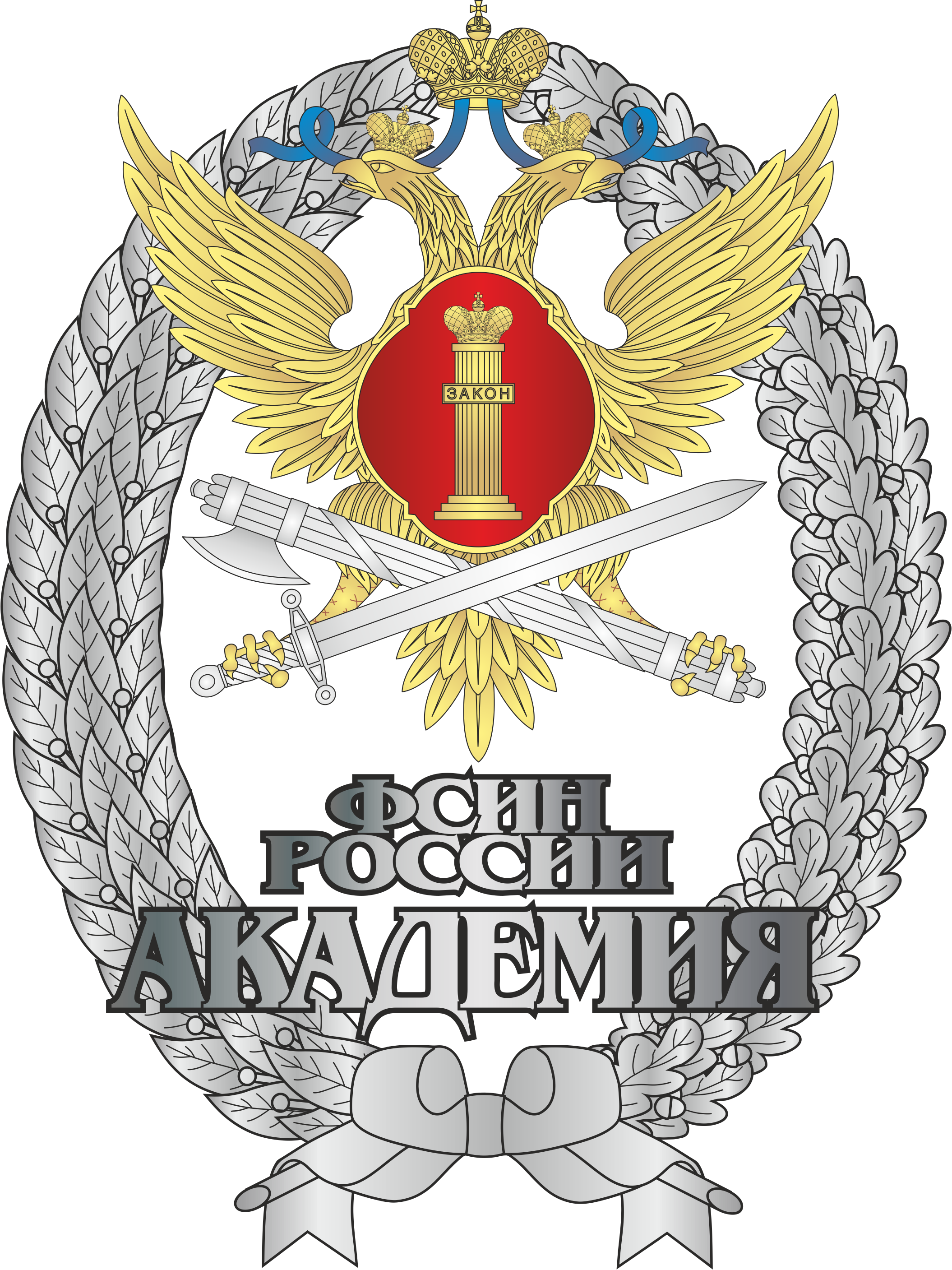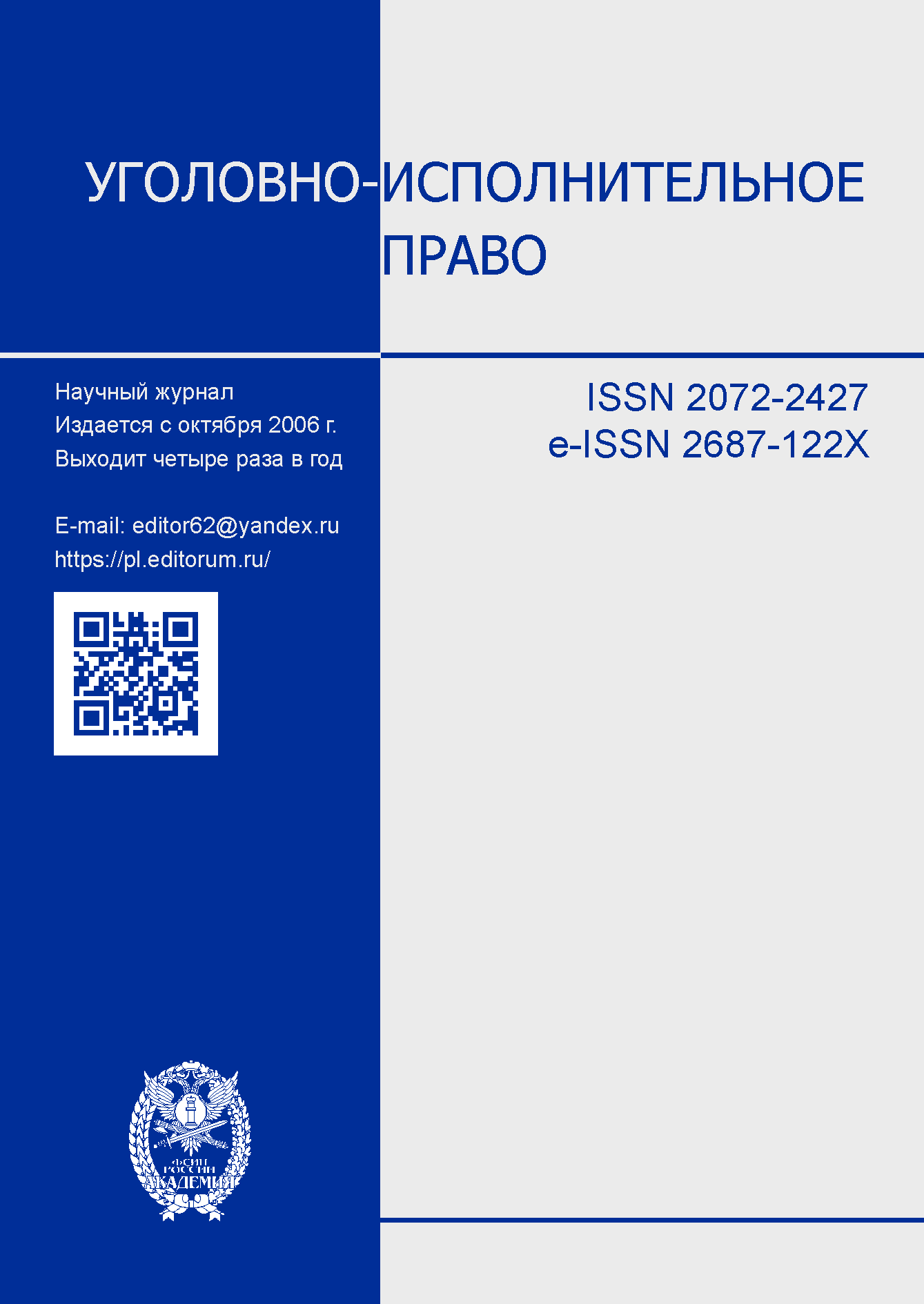Sankt-Peterburg, St. Petersburg, Russian Federation
UDC 343.848
UDC 364.04
The article is devoted to the areas of resocialization of convicts, implemented on the example of correctional colonies of general and strict regimes in the Vologda and Ivanovo regions. According to the results of the study, it is concluded that convicts, being in places of deprivation of liberty for a long time in conditions of isolation and dictated routine, at a distance from society, become unprotected and vulnerable from the position of their further socialization and adaptation to independent life in freedom. This automatically leads to the fact that a significant part of the persons released from places of detention end up there again. In this regard, the work on the re-socialization of convicts is quite time-consuming, multilevel, but at the same time necessary. It is proved that assistance in the adaptation and return of convicts to a normal independent and law-abiding life in society can be effective only through the implementation of complex therapy, in particular in the areas of social and psychological work. The tasks of re-socialization should be solved by attracting convicts to work, improving their educational level, organizing their leisure activities, including sports and cultural and educational activities, preserving and restoring health, assisting in solving legal issues related to the realization of civil rights, restoring actually lost social functions, instilling the rules of behavior accepted in society, elimination of negative social attitudes, development of communication and interaction skills in society, learning how to get out of crisis situations and solve the problems of everyday life. According to the results of a survey of convicts and experts, the main subjective and objective problems of an adaptive nature have been identified that make it difficult to re-socialize convicts serving sentences in correctional colonies of general and strict regimes in the Vologda and Ivanovo regions: pedagogical neglect, denial of correct behavior in society, psychological trauma in childhood, fear of release, inability to cope with aggression, low self-esteem, inability to overcome difficulties, fear of being rejected by society after liberation, to be left without financial support, as well as the lack of prospects for the future, inability to build relationships with people, loss of work skills, unwillingness or fear to seek help from a psychologist, penitentiary stress, lack of family ties, social instability in life at large, lack of housing, work, relatives, tense moral and psychological climate in the cell (detachment), informal subculture, difficulties associated with obtaining education, obtaining qualified medical care, negative attitude towards former convicts from others.
penitentiary system, probation, social adaptation, re-socialization, psychological work, social work, social rehabilitation, convict
1. Idrisov, I. T. 2021, Resocialization of convicts and criminal justice: textbook, Samara University Press,Samara.
2. Filonenko,T.V.2022,‘Post-penitentiary recidivism as an indicator of the effectiveness of correctional institutions and punishment in the form of imprisonment’, Asia-Pacificregion: economics, politics, law, iss. 4, pp. 121–135.
3. Miloslavova, I. A. 2009, The conceptandstructure of socialadaptation, Moscow.
4. Ermasov, E. V. 2009, ‘Psychological stress inisolation’, Personality development, iss. 2, pp. 84–99.
5. Sattorova,D.V. 2020,‘A study of the adaptation of convicted persons with disabilities to conditions of deprivation of liberty based on the diagnosis of psychological factors affecting it’, The World of Science.Pedagogy and psychology, iss. 3, pp. 71–72.
6. Debolsky, M. G. & Matveeva, I. A. 2013, ‘Suicidalbehavior of convicts, suspects and accusedin places of detention’, Psychologyand Law, iss.3, pp. 1–11.
7. Pronina, O. V. 2022, ‘Prevention of suicide among persons serving sentences in correctional institutions as a way to ensure the personal safety of convicts’, Legal Bulletin of Dagestan State University, iss. 1, pp. 147–153.
8. Suchkova, E. L. 2012, ‘Convicts’ ideas about the informal regulatory system operating in places of deprivation of liberty’, Legal Psychology, iss. 2, pp. 37–39.
9. Gromadskaya, N. V. & Pavlik, E. M. 2019, ‘Features of family and legal relations of convicts serving sentences related to imprisonment (life imprisonment)’, Bulletin of the St. Petersburg University of the Ministry of Internal Affairs of Russia, iss. 1(81), pp. 100–106.
10. Guseva, E. V. 2023, ‘Vocationaltraining of convictsinplaces of deprivation of liberty’, Scientificnotes of Lesgaft University, iss. 7(221), pp. 95–98.













